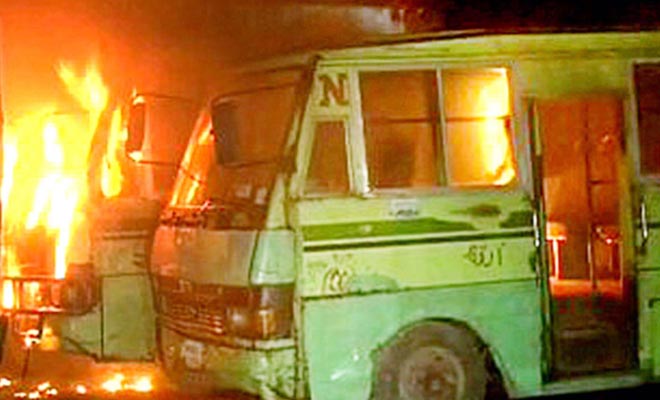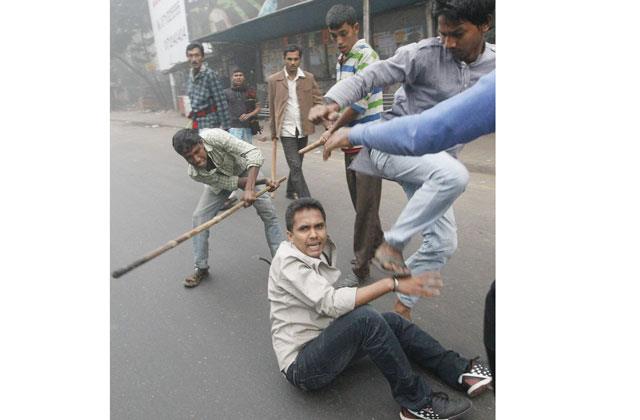Huxley, of course, doesn't explain how words acquire the connotations that they do. If the miserable minority of America - and the refugees of Palestine and now the victims of Iraq, Afghanistan, Bangladesh and Burma - should find the experience of democracy so intolerable, how is it that the word comes to impart the quasi-orgasmic feeling described by Huxley? Why does the utterer of the word feel "...a pleasing enlargement of his personality, following on the idea of the loosening of restraints"?
This wasn't always the case. Polybius, probably the last thinker to pronounce on the subject in antiquity, rechristened democracy into the unholy 'ochlocracy', which connotation stuck to it like a barnacle well into the eighteenth century, and which accurately describes its practice today in Bangladesh. "As it entered the eighteenth century, democracy was still very much a pariah word." [2]
Dr. Pangloss, in Candide, or the Optimist, after every rape and disembowelment, proclaims this the best of all possible worlds. Harry K. Thomas, American ambassador to Bangladesh, similarly pronounced that "we are blessed to be living in a democracy like Bangladesh". [3] Some of my friends and acquaintances share this Panglossian and Thomistic view of our present and past predicament. These people are devout: no amount of evidence can dissuade them or pervert their judgements. The decapitated, disarticulated and the raped will never shake the faith of these modern Leibnizians. They have philosophical proof that all is well. It is the naysayers who cannot see our blessings. We need more education. More democracy. More rapes and disembowelments.
Take Ripon Sikder, a sixteen-year-old injured by a bomb during an anti-government hartal by the opposition, who died on 4th May 2001 at the Dhaka Medical College Hospital after struggling for his life for eleven days [4]. He was an innocent bystander caught between the student thugs of our political parties. Truly, we are blessed. (Details of rapes and immolation in Bangladesh can be found here, and a selection of headlines of student thugs murdering each other is listed here.)
Americans and the western world in general find it useful to endow the word with aphrodisiac potential, for it enables them to appear benign while committing the worst of atrocities. For the question must be asked: whose restraints? Surely not the restraint of the black man in jail for selling crack? Surely not the Indian who had to give up the Ghost Dance as he was conquered, and took to swallowing peyote for relief from the white man's chains? Surely not the Palestinian whose land has been confiscated behind a security fence? Surely not the Iraqi woman who lost her baby for want of medical care due to UN sanctions? Surely not the 700,000 Rohingyas ethnically cleansed and driven to Bangladesh after Burma's democratic transition? In 2015, before the Rohingya exodus, the Economist announced the prize for 'country of the year' to Burma/Myanmar: "It could still go wrong. (Myanmar still treats the Rohingya and other minorities disgracefully.) But the country's transition to something resembling democracy has come faster than anyone dared expect. For that, Myanmar wins the prize."
The loosening of restraints must refer to the restraints of the white, western man and woman: the loosening of all moral restraint, in short (in the above case, that of the editors of the Economist).
Next Page 1 | 2 | 3 | 4 | 5 | 6 | 7
(Note: You can view every article as one long page if you sign up as an Advocate Member, or higher).






